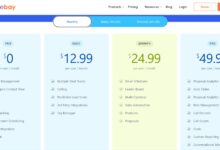CRM Azure Integration for Small Business Sales Automation: 7 Powerful Benefits You Can’t Ignore
Small businesses today are racing to keep up with digital transformation. One of the most powerful tools they can leverage? CRM Azure integration for small business sales automation. It’s not just for enterprise giants anymore—this dynamic combo streamlines sales, boosts efficiency, and drives growth with minimal overhead.
Understanding CRM Azure Integration for Small Business Sales Automation

At its core, CRM Azure integration for small business sales automation connects customer relationship management (CRM) platforms with Microsoft Azure’s cloud infrastructure. This integration enables small businesses to automate sales processes, store customer data securely, and scale operations without investing heavily in on-premise IT systems.
What Is CRM Integration?
CRM integration refers to the process of connecting a CRM system—like Salesforce, HubSpot, or Microsoft Dynamics 365—with other business applications such as email, marketing tools, ERP systems, or cloud platforms. When integrated properly, CRM systems become central hubs for all customer-related data and activities.
- Enables real-time data synchronization across platforms
- Reduces manual data entry and human error
- Improves team collaboration by centralizing customer information
For small businesses, this means sales reps spend less time on admin and more time closing deals. According to Microsoft Dynamics 365, integrated CRM systems can increase sales productivity by up to 34%.
What Role Does Microsoft Azure Play?
Microsoft Azure is a cloud computing platform that provides servers, storage, networking, and analytics services on a pay-as-you-go basis. When used in CRM Azure integration for small business sales automation, Azure acts as the backbone for data processing, security, and scalability.
- Offers enterprise-grade security and compliance
- Supports AI and machine learning for predictive sales analytics
- Enables seamless API connections between CRM and other SaaS tools
“Azure isn’t just infrastructure—it’s a catalyst for intelligent business automation.” — Microsoft Azure Official Documentation
By leveraging Azure, small businesses gain access to tools typically reserved for large corporations, leveling the playing field in competitive markets.
Why Small Businesses Need CRM Azure Integration for Sales Automation
Many small businesses still rely on spreadsheets, disjointed tools, or outdated software to manage sales. This leads to inefficiencies, missed opportunities, and poor customer experiences. CRM Azure integration for small business sales automation solves these challenges by creating a unified, intelligent sales ecosystem.
Eliminating Data Silos
Data silos occur when customer information is scattered across emails, spreadsheets, and different apps. This fragmentation makes it hard to get a 360-degree view of the customer.
With CRM Azure integration, data from various sources—such as website forms, social media, and email campaigns—is automatically synced into the CRM. Azure’s data lakes and integration services (like Azure Logic Apps and Azure Data Factory) ensure smooth, real-time data flow.
- Centralizes customer interactions across channels
- Enables accurate sales forecasting
- Improves lead scoring and segmentation
For example, a small e-commerce business can use Azure Functions to trigger CRM updates whenever a customer makes a purchase, ensuring instant follow-up and personalized recommendations.
Scaling Without the Overhead
One of the biggest advantages of CRM Azure integration for small business sales automation is scalability. Traditional CRM setups require expensive hardware and IT staff. Azure’s cloud model eliminates this.
- Pay only for the resources you use
- Scale up during peak seasons (e.g., holidays) and scale down afterward
- Deploy new features quickly via Azure DevOps
This flexibility is crucial for small businesses with limited budgets but big growth ambitions. A study by Gartner found that cloud-based CRM adoption among SMBs grew by 22% in 2023 alone.
Key Components of CRM Azure Integration for Small Business Sales Automation
Successful CRM Azure integration for small business sales automation isn’t just about connecting two systems. It involves several key components working together to deliver real business value.
CRM Platform Selection
Not all CRMs are created equal. Small businesses must choose a CRM that supports Azure integration and aligns with their sales processes.
- Microsoft Dynamics 365: Native integration with Azure, ideal for businesses already using Microsoft 365
- Salesforce: Can integrate with Azure via MuleSoft or custom APIs
- HubSpot: Offers integration through Azure Logic Apps and third-party connectors
Dynamics 365 is often the top choice due to its seamless Azure compatibility and built-in AI tools for sales insights.
Cloud Infrastructure and Security
Azure provides the infrastructure, but proper configuration is key. Small businesses must ensure their CRM Azure integration is secure and compliant.
- Use Azure Active Directory (AAD) for identity management
- Enable encryption at rest and in transit
- Leverage Azure Security Center for threat monitoring
Compliance with GDPR, HIPAA, or CCPA is easier with Azure’s built-in compliance tools, giving small businesses peace of mind when handling customer data.
Automation Workflows
Sales automation is the heart of CRM Azure integration for small business sales automation. Workflows can be built using tools like Azure Logic Apps, Power Automate, or custom code.
- Automate lead assignment based on geography or product interest
- Trigger follow-up emails after a demo call
- Update inventory systems when a sale is closed
For instance, a small SaaS company can use Power Automate to create a workflow that: detects a new lead in the CRM → checks Azure-hosted pricing database → sends a personalized quote email → logs the interaction.
“Automation isn’t about replacing people—it’s about empowering them to focus on high-value tasks.” — Satya Nadella, CEO of Microsoft
Step-by-Step Guide to Implementing CRM Azure Integration for Small Business Sales Automation
Implementing CRM Azure integration for small business sales automation doesn’t have to be daunting. Follow this step-by-step guide to ensure a smooth rollout.
Step 1: Assess Your Current Sales Process
Before integrating, map out your current sales funnel. Identify pain points, manual tasks, and data gaps.
- Where do leads come from?
- How are deals tracked?
- What tools are currently in use?
This audit helps determine which processes should be automated and which data needs to be centralized.
Step 2: Choose the Right CRM and Azure Services
Select a CRM that fits your business size and goals. Then, identify the Azure services you’ll need.
- For data integration: Azure Logic Apps or Azure Data Factory
- For workflow automation: Power Automate or Azure Functions
- For analytics: Azure Synapse Analytics or Power BI
Many small businesses start with Dynamics 365 + Power Automate, which offers a low-code solution for rapid deployment.
Step 3: Set Up Secure Data Connections
Use Azure API Management to create secure endpoints between your CRM and other apps. Implement role-based access control (RBAC) to limit data exposure.
- Test connections in a sandbox environment first
- Monitor API usage with Azure Monitor
- Set up alerts for unusual activity
Security is non-negotiable—especially when handling customer PII (Personally Identifiable Information).
Real-World Use Cases of CRM Azure Integration for Small Business Sales Automation
Theoretical benefits are great, but real-world examples show just how powerful CRM Azure integration for small business sales automation can be.
E-Commerce Store: Automated Order and Customer Follow-Up
A small online retailer integrated their Shopify store with Dynamics 365 via Azure Logic Apps. When a customer places an order:
- Azure Function triggers a CRM record update
- Power Automate sends a thank-you email with a discount for next purchase
- Customer is added to a nurture campaign in HubSpot (connected via API)
Result: 30% increase in repeat purchases within three months.
Service-Based Business: Lead Routing and Appointment Scheduling
A local HVAC company used CRM Azure integration for small business sales automation to streamline lead management. When a lead fills out a web form:
- Azure Logic App checks technician availability in a calendar system
- Assigns the lead to the nearest available technician
- Sends an automated SMS with appointment details
This reduced response time from 24 hours to under 15 minutes, improving customer satisfaction and conversion rates.
SaaS Startup: Usage-Based Upselling
A small software company integrated their product usage data (hosted on Azure) with their CRM. When a customer hits a usage threshold:
- Azure Function sends a trigger to the CRM
- Sales rep receives an alert to offer an upgrade
- Personalized email is sent with upgrade benefits
This led to a 25% increase in upsell revenue without additional sales headcount.
Common Challenges and How to Overcome Them
While CRM Azure integration for small business sales automation offers huge benefits, it’s not without challenges. Here’s how to tackle the most common ones.
Data Migration Issues
Moving data from legacy systems to a new CRM can be messy. Incomplete or duplicate records can derail automation.
- Use Azure Data Factory to clean and transform data during migration
- Run test migrations first
- Validate data integrity post-migration
Tip: Start with a pilot group of users and data before full rollout.
Lack of Technical Expertise
Many small businesses don’t have in-house developers. But you don’t need a full IT team to succeed.
- Leverage low-code tools like Power Automate and Power Apps
- Hire freelance Azure consultants via platforms like Upwork or Toptal
- Use Microsoft’s free training resources on Learn.microsoft.com
Microsoft offers free Azure and CRM training specifically for small businesses.
Resistance to Change
Employees may resist new systems out of fear or habit. Change management is critical.
- Involve the sales team in the planning process
- Provide hands-on training and clear documentation
- Highlight quick wins (e.g., reduced manual entry)
One business saw adoption jump from 40% to 90% after running a “CRM Champion” program where top users mentored others.
Future Trends in CRM Azure Integration for Small Business Sales Automation
The landscape of CRM Azure integration for small business sales automation is evolving fast. Staying ahead means embracing emerging trends.
AI-Powered Sales Insights
Azure’s AI services, like Azure Cognitive Services and Azure Machine Learning, are being used to predict customer behavior and recommend next steps.
- Predict which leads are most likely to convert
- Recommend optimal times to follow up
- Generate AI-written email drafts based on CRM data
For example, Dynamics 365 Sales Insights uses AI to analyze call transcripts and email sentiment, helping reps improve their approach.
Hyper-Personalization at Scale
With Azure’s data processing power, small businesses can deliver personalized experiences once only possible for giants like Amazon.
- Use customer behavior data to tailor product recommendations
- Send dynamic content based on location, past purchases, or engagement level
- Automate personalized video messages using Azure Media Services
This level of personalization boosts conversion rates and customer loyalty.
Integration with IoT and Edge Devices
For businesses with physical products or field service teams, IoT integration is the next frontier.
- Connect smart devices to Azure IoT Hub
- Feed usage data into the CRM to trigger service calls or upgrades
- Enable predictive maintenance based on real-time device data
A small industrial equipment company uses this to alert customers before a machine fails—turning maintenance into a sales opportunity.
What is CRM Azure integration for small business sales automation?
CRM Azure integration for small business sales automation connects a customer relationship management system with Microsoft Azure’s cloud platform to automate sales tasks, centralize customer data, and improve efficiency using secure, scalable infrastructure.
Do I need a developer to set up CRM Azure integration?
Not necessarily. Tools like Microsoft Power Automate and Azure Logic Apps offer low-code or no-code solutions that allow non-technical users to create automation workflows. However, complex integrations may require developer support.
Which CRM works best with Azure for small businesses?
Microsoft Dynamics 365 is the most seamless choice due to native integration with Azure. However, Salesforce and HubSpot can also be integrated using APIs and Azure services.
Is CRM Azure integration secure for handling customer data?
Yes. Microsoft Azure provides enterprise-grade security, including encryption, identity management, and compliance certifications (GDPR, HIPAA, etc.), making it one of the most secure platforms for CRM integration.
How much does CRM Azure integration cost for a small business?
Costs vary based on CRM choice and Azure usage. Dynamics 365 starts at around $65/user/month, while Azure services are pay-as-you-go. Many small businesses spend between $200–$800/month depending on scale and features used.
CRM Azure integration for small business sales automation is no longer a luxury—it’s a necessity for staying competitive. By connecting CRM systems with Azure’s powerful cloud infrastructure, small businesses can automate sales, enhance customer experiences, and scale efficiently. From eliminating data silos to leveraging AI-driven insights, the benefits are clear. While challenges like data migration and change management exist, they can be overcome with the right tools and strategies. As technology evolves, businesses that embrace CRM Azure integration will be best positioned to thrive in the digital economy.
Recommended for you 👇
Further Reading:


